How Regular AC Maintenance Can Save You Money
Maintaining your air conditioner regularly is more than just a...
Humid climates can be incredibly unpleasant. High humidity can make you sweat, make your skin oily, and even encourage the growth of mold in your house. This is not only uncomfortable, but it could also be bad for your health. Fortunately, there are a number of ways to efficiently reduce indoor humidity levels and improve the comfort of your home.
Using a dehumidifier is one of the best ways to regulate the humidity levels inside a space. These devices function by removing moisture from the air and storing it in a tank. To get the desired results, you might need to utilize several dehumidifiers, depending on the size of your property and the humidity level.
The size of the device, the volume of moisture it can remove from the air, and the noise level should all be taken into account when selecting a dehumidifier. Discuss your options with a professional heating, ventilation, and air conditioning (HVAC) specialist to find a model that’s right for you.
Controlling the amount of humidity indoors also requires proper ventilation. Open windows, use exhaust fans in the kitchen and bathroom, and use a ventilation system to move air around your house to ensure that it is well-ventilated.
Exhaust fans remove extra moisture from the air while cooking, taking a shower, or doing the laundry. Ensure that the fans in your kitchen and bathroom are the appropriate size for the space they are in. If you don’t have a ventilation system in place, consider consulting a professional HVAC service provider.
High indoor humidity levels can be a result of leaky pipes, water damage, and other sources of moisture. Mold development and other moisture-related problems should be avoided by repairing leaks and dealing with water damage as soon as feasible.
Regularly check your home for indications of leaks or water damage. Address any issues you see immediately away, such as water stains, moisture, or musty odors. If you think there could be concealed water damage in your house, it’s also a good idea to get it checked out by an expert.
It’s crucial to keep an eye on the humidity levels in your house if you want to efficiently regulate indoor humidity levels. A hygrometer can be used to gauge the amount of humidity in the air. For the best comfort and air quality, aim for a humidity level of between 30 and 50 percent.
If your home’s humidity levels are persistently high, think about installing a dehumidifier or improving the ventilation. If the humidity in your house is persistently low, you might want to use a humidifier or turn down the airflow.
Humidity levels inside may be managed with the use of air conditioning. When the air passes over the cooling coils of an air conditioner, not only is the temperature lowered, but the humidity is also reduced. To guarantee efficient dehumidification, make sure your AC unit is the right size for your house.
Make sure the filter is clean and the temperature is set to a reasonable level before operating your air conditioner. To guarantee that your air conditioner is running correctly, schedule regular maintenance with a professional AC technician.
By following these guidelines, you can maintain optimal humidity levels within your home, making it more pleasant and healthier for you and your family. Remember that keeping optimum humidity levels is not only vital for your comfort, but it may also help avoid mold development, allergies, and other health concerns that are related to excessive indoor humidity levels.
To schedule an evaluation of your indoor air quality and check your humidity levels, contact Kyzar Air Conditioning. As a state-licensed, family-owned HVAC company, we offer expert indoor air quality solutions that can help regulate humidity and improve your health and comfort.
Call 561-640-1000 to learn more.
Disclaimer: All content on this website is intended for informational purposes only. We discourage anyone from attempting to repair, replace, or maintain HVAC systems without the help of a licensed, insured HVAC technician.
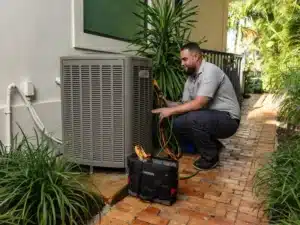
Maintaining your air conditioner regularly is more than just a...
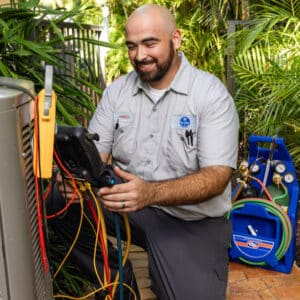
Florida homeowners rely on air conditioning more than most parts...
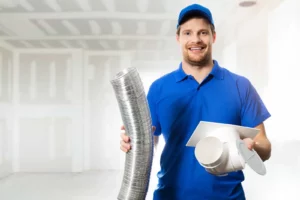
Indoor air quality is a major concern for many Florida...

Indoor air quality, often abbreviated as IAQ, plays a crucial...
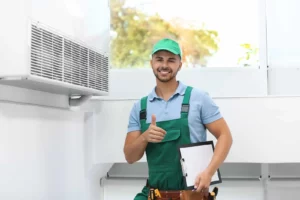
Installing a new HVAC system is a significant investment in...
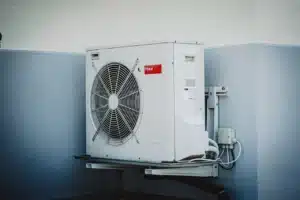
For many homeowners in Florida, the HVAC system is the...